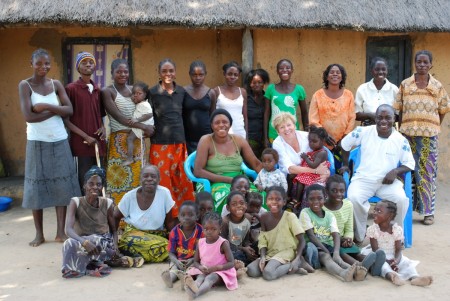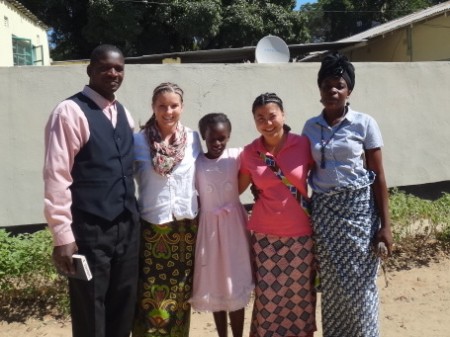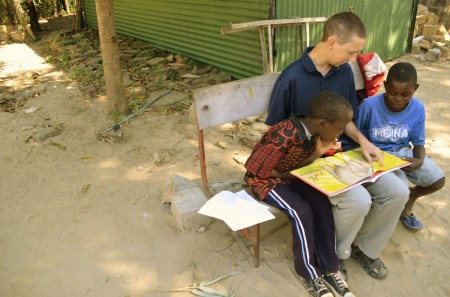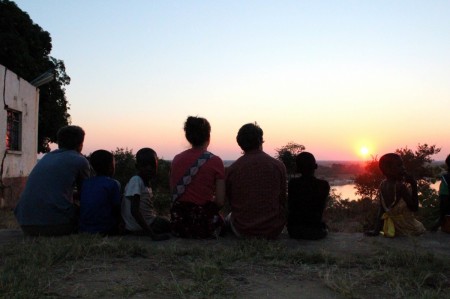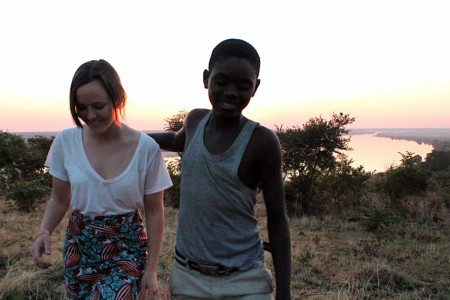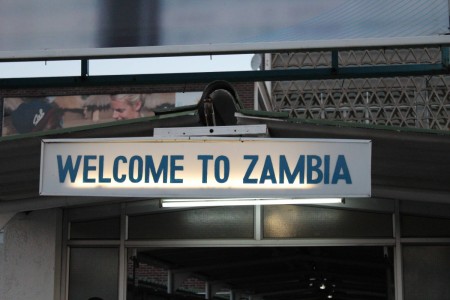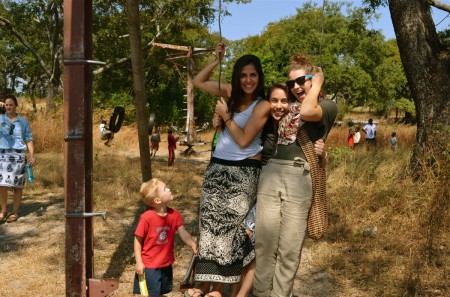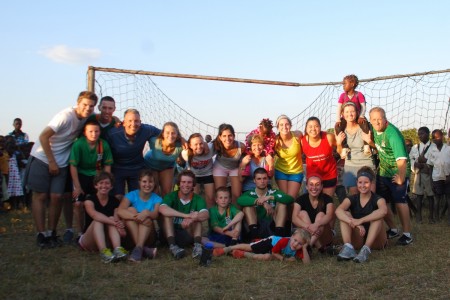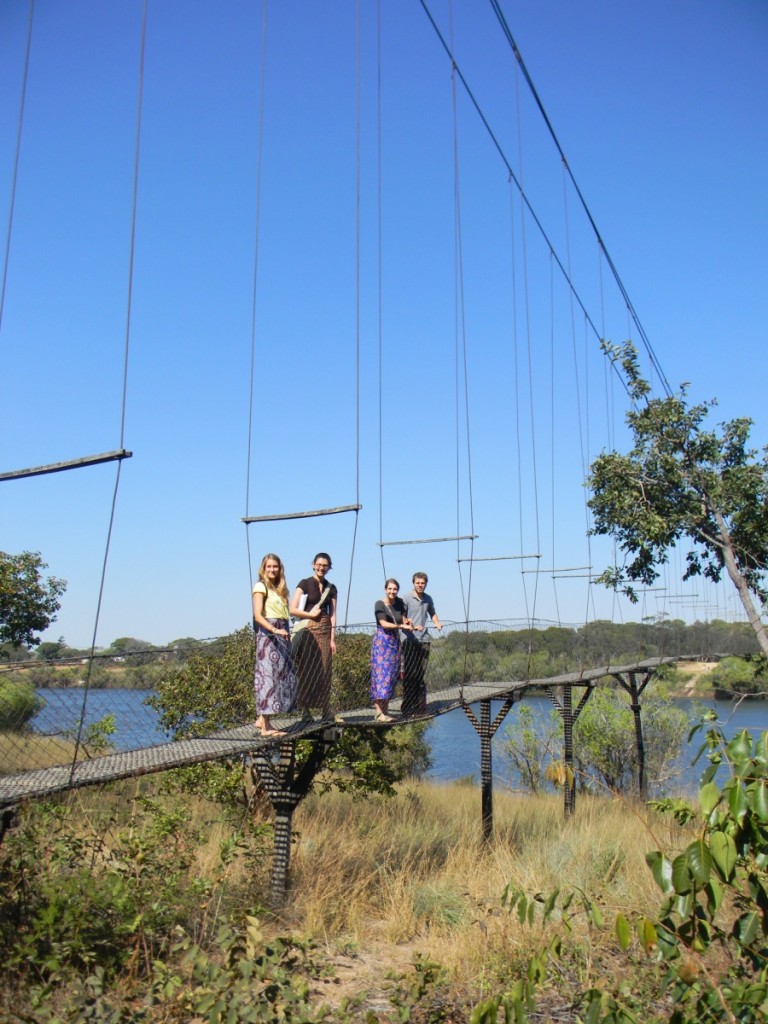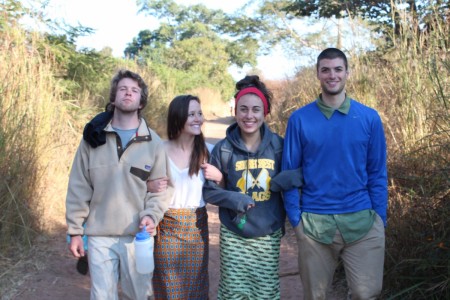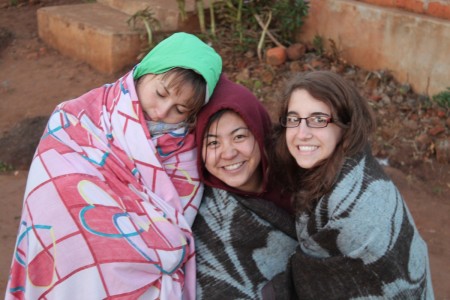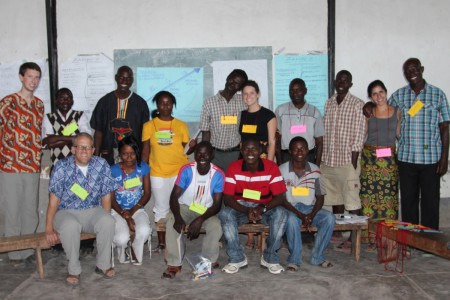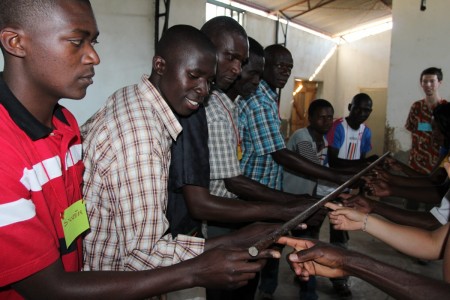Time is our scarcest resource here. I think most of us are feeling the press of too many people and places left to experience in Zambezi and too few hours and minutes left to have those experiences.
So I take comfort in Benjamin Disraeli’s words “But what minutes! Count them by sensation, and not by calendars and each moment is a day.”
I am also torn by choosing between having the sensations and taking a little time to savor and record them. Previous journeys to Nicaragua and Vietnam have taught me that, in fact, I do forget names and places I think I will remember forever, so I am frequently jotting down a name or note in a little notebook, and have developed an unnatural attachment to my pen, a functioning one being a scarce commodity here.
Here, in no particular order, are some of the ordinary/extraordinary sensations I don’t want to forget: going to new market and old market to buy eggs, pineapple juice, macha macha (and one more chitengue!), inspiring conversations with Mama Josephine, Mama Love, Bessie (the powerful DEBS) and her tolerant, wise, funny husband Victor, hearing the creative and somewhat obscene metaphors developed by Natalie and Jonathan for the Zambian version of medically accurate sex education, observing Erin’s amazing energy in the Chilenga classroom, and Joe, Lauren, and Constanza’s commitment to hearing the stories of both Juliuses, Mary, and Chansa in the leadership class, that annoying mosquito that bothers me at night, and the cry of the poor goat we picked up in Mama Kawatu’s village, Hikaru’s bravery as we cross the Zambezi in the tippy banana boat, Grace showing us how to eat Nshima, Aubrey and the chicken, walking through deep sand to another amazing sunset, the frustrations of getting the brazier started when there is no power, and the incomparable satisfaction of the first sip of coffee after the water finally boils (thanks Blake!), the charm of the little girls dressed in white dancing up the aisle during mass, Brit and Lauren’s dancing with the Makeshi, Kellie’s story of her intimate homestay, John’s pragmatic idealism and card-playing expertise, Katie teasing Uncle E and Christina coaching him about patience, the unexpected shower I got when the Landrover blasted through a watery and deeper-than-expected ditch on the way to Chinyingi, football coach Owen, and his always energetic brothers, the overwhelming powerlessness I felt when the Chilgolala HIV/AIDS support group shared their stories and hopes that I could help them and introduced me to a young man the same age as my son so weakened by the disease that he could not stand, and yet, he gave us a courageous smile…
I have felt despair and hope here, ultimately more inspired than discouraged by the Africa I now know just a little bit. I admire the visions and personal courage of the Zambians I have met. I ponder the structural and political forces that make prosperity so seemingly unattainable for most.
As you can tell, the Gonzaga students have enriched my time here as much as the Zambians have, reminding me of the incomparably deep passion and diverse talents of twenty-somethings who I am counting on in solidarity with their African counterparts to add some pieces to this incredible paradoxical puzzle of poverty and potential that is Zambezi, Africa as well as hometown, USA
A final memory: How are you? How are you, chindele?
This Chindele, letting go of a big professional and political chapter of my life at home, completely unaware of what the next chapter will bring, eating cassava and dancing in a class room celebration at Chilenga basic and scrambling up the bank of the Zambezi to the amusement of the locals, is fine, just fine!
Kisu Mwane
Senator Lisa Brown, Gonzaga faculty

